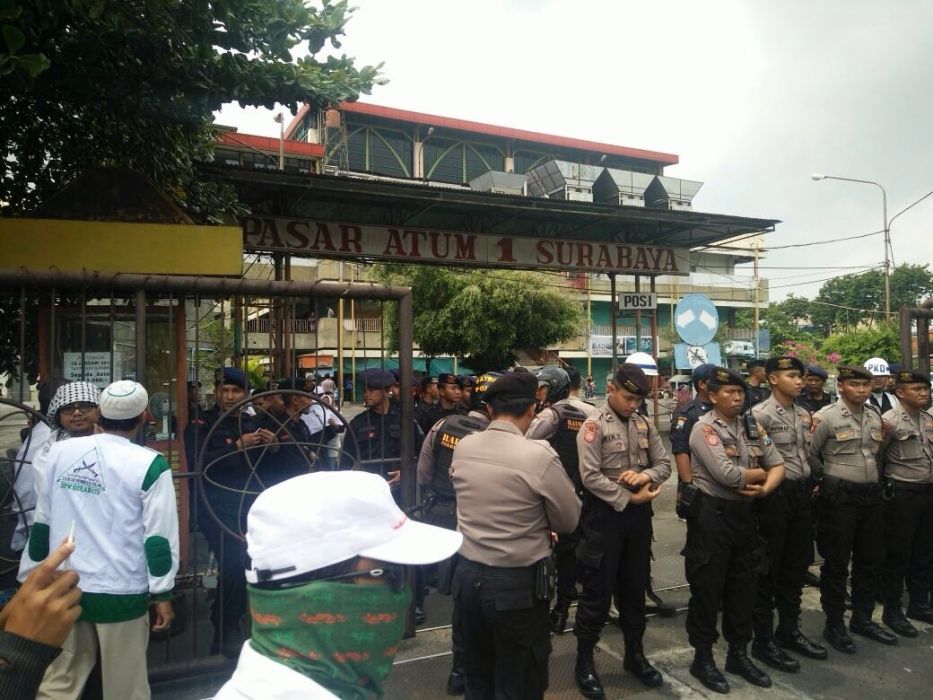Fatwas (religious decrees) issued by the Indonesian Ulema Council (MUI) do not carry any legal weight, but hardline Islamic groups often use them as opportunity to act as self-appointed “morality police” by intimidating others into following them, often with the help of actual law enforcement officials.
The latest such incident occurred yesterday when a mob consisting of Islamic Defenders Front (FPI) members visited several malls in the city of Surabaya, East Java, to make sure that no Muslim employees were being forced to wear Christmas accessories at work, which was banned by the MUI in a fatwa they released last week.
Two hundred Surabaya police officers were reportedly deployed to escort the FPI mob as they hopped from mall to mall ensuring that MUI’s fatwa is being upheld. That said, Surabaya Police Chief M Iqbal denied that FPI was doing “sweeping” (a term which is used to describe groups like FPI going around and intimidating businesses that don’t comply with their religious rules, often using violent tactics).
“This isn’t sweeping, this is ta’aruf (socializing). Don’t scare the citizens of Surabaya with the term sweeping,” Iqbal said, as quoted by Merdeka yesterday.
Iqbal added that FPI members stayed outside each mall they visited while representatives met with mall management to get them to sign memorandums agreeing that MUI’s fatwa would be observed.
The FPI socialized MUI’s fatwa at Pasar Atum, ITC, Grand City, Delta Plaza, WTC, Excelso Galaxy Mall, Excelso Tunjungan Mall, and Ciputra World in Surabaya.
The National Police Commission (Kompolnas), an Indonesian police watchdog, believes there are instances when law enforcement is unable to separate MUI’s fatwas from law. The Bekasi Metro Police, for example, last week issued a circular to business owners reminding them to observe MUI’s fatwa regarding Christmas accessories.
“MUI’s fatwa does not make up for the basis of law in Indonesia,” said Kompolnas Commissioner Poengky Indarti, as quoted by Tribunnews.
“I worry that a circular like this (one in Bekasi) can be taken advantage of by certain groups to carry out raids.”




